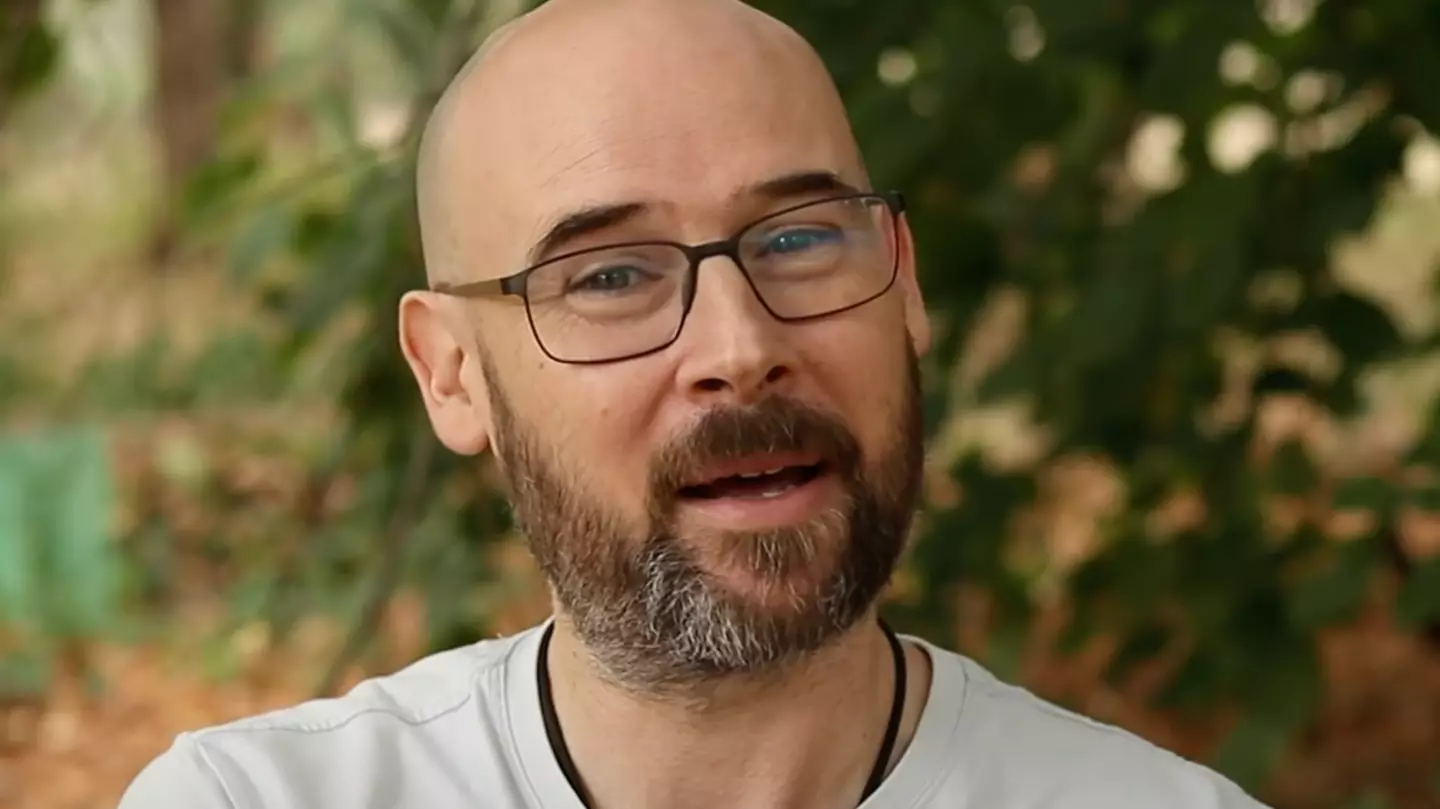
A 41-year-old man who was diagnosed with early-onset Alzheimer's has been sharing his story, including the symptom that started affecting him while he was asleep.
Australian man Fraser has been documenting his experience on YouTube through his channel, where he explained to viewers that he'd noticed a 'change' in the night.
He said his symptoms started showing two-and-a-half years before he was officially diagnosed with early-onset Alzheimer's as he realised he had not had 'any change' in his dreams and the quality of his sleep was dropping as well.
Fraser also said that his 'earliest symptom' was forgetfulness, telling his viewers that 'you sort of just forget stuff', and he felt like he was forgetting some big things.
Advert
Alzheimer's is the most common cause of dementia in the UK, and though the causes of Alzheimer's are not fully understood it seems as though age and a family history of Alzheimer's are among the driving factors.

While it's most common in people over the age of 65, the NHS warns that around one in 13 cases of people with Alzheimer's is diagnosed in people younger than that and this is what is known as early-onset Alzheimer's.
Early on some of the symptoms may be mistaken for stress, normal forgetfulness or other factors.
Among the earlier symptoms of Alzheimer's is forgetting important things, especially things you'd learned about recently.
Advert
The NHS says the early symptoms include:
- Forgetting about recent conversations or events
- Misplacing items
- Forgetting the names of places and objects
- Having trouble thinking of the right word
- Asking questions repetitively
- Showing poor judgement or finding it harder to make decisions
- Becoming less flexible and more hesitant to try new things
- Changes in mood
Explaining his symptoms to his viewers, Fraser described watching a film with his partner that they'd seen only a month before and having no memory of seeing it previously.
He also talked about trying to remember a time when he played golf with his friends and struggled to remember the names of things.
Advert
As the disease progresses those symptoms can develop further, causing more frustration, and further signs include:
- Increasing confusion and disorientation – for example, getting lost, or wandering and not knowing what time of day it is
- Obsessive, repetitive or impulsive behaviour
- Delusions, paranoid feelings and suspicious about carers or family members
- Problems with speech or language
- Disturbed sleep
- Changes in mood, such as frequent mood swings, depression and feeling increasingly anxious, frustrated or agitated
- Difficulty performing spatial tasks, such as judging distances
- Seeing or hearing things that other people do not
The NHS has warned that someone developing these symptoms will likely need help and support to live their lives, and say that people who are worried about their memories should go and see a doctor.
If you've been affected by dementia or Alzheimer's and would like to speak with someone in confidence, contact the Alzheimer’s Society via 0333 150 3456 or visit their website for more information.
Topics: Mental Health, Health, NHS, YouTube